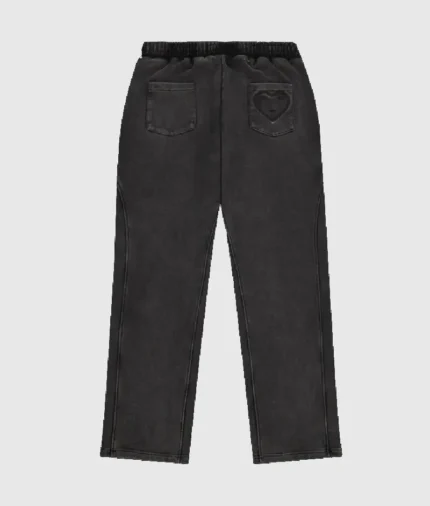Breaking Free: An Analysis of “Pants” by Carsicko
In the punk rock world, rebellion and defiance have long been central themes in both music and culture. One song that encapsulates these elements with a unique blend of humor and frustration is “Pants” by Carsicko. On the surface, it may seem like a simple and quirky track about something as mundane as pants, but dig a little deeper, and you’ll find that it’s a commentary on the absurdity of societal norms and the human desire for freedom.
Setting the Scene: Frustration and Conformity
The song opens with a portrayal of dissatisfaction, not just with life, but with the ways in which we are expected to behave. The speaker expresses a general frustration with the state of the world, using the simple concept of wearing pants as a metaphor for the mundane, everyday rules that society imposes. The act of putting on pants, a task so trivial in daily life, becomes a symbol of the pressures and expectations that dictate how we are supposed to conform.
By focusing on pants, the song plays with the absurdity of how something so simple can represent a much larger issue. It’s not just about clothes; it’s about the uniformity that comes with societal expectations.
Chorus: Rebellion and Resistance
In the chorus, the speaker takes a stand. Rather than accepting the “pants” that are metaphorically forced upon them, they rebel. Here, the desire to break free from the confines of societal norms becomes clear. The pants represent the broader concept of fitting in—whether it’s at school, work, or in social life—and the speaker resists this conformity. It’s a playful yet defiant way of expressing the need for individuality, rejecting the pressures that tell us how we should live and behave.
The chorus reinforces the idea that society’s rules are not only restrictive but can also be absurd. By calling attention to the discomfort and awkwardness of trying to fit into these expectations, the speaker positions themselves as someone who refuses to adhere to these arbitrary standards.
Exploring the Struggle
In the second verse, Carsicko deepens the theme of rebellion by further exploring the conflict between personal freedom and societal pressures. The speaker contrasts their desire for authenticity with the monotony of everyday life. Despite the realization that conformity often brings about a false sense of ease, the frustration of feeling forced to “wear the pants” of society grows.
This section also highlights the tension between freedom and the mundane. The speaker’s critique isn’t just of societal expectations but also of the superficiality that often accompanies the need to fit in. It’s a reflection on how hollow life can feel when one is constantly trying to meet the standards set by others.
Reaffirming the Rebellion
As the chorus returns, it becomes clear that this is not just a one-time protest but an ongoing act of defiance. The repetition of the chorus emphasizes the speaker’s unwavering commitment to rejecting societal norms. There is an energy here that grows with each repetition, building upon the earlier rebellion with more intensity and conviction. The song’s energy mirrors the escalating tension between the desire for individuality and the overwhelming force of societal expectations.
Bridge: A Moment of Introspection
The bridge provides a brief change in the song’s structure. Here, there’s a shift, perhaps signaling a moment of reflection or melancholy. It’s as if the speaker pauses to consider the cost of this rebellion. There may be a moment of introspection about the consequences of rejecting societal norms, but it’s brief, maintaining the punk ethos of quick bursts of emotion rather than prolonged contemplation.
The bridge allows for a deeper exploration of the feelings of alienation and frustration that come with living outside the rules. It speaks to the complexity of wanting to be an individual while simultaneously feeling the weight of social expectations.
Conclusion: Liberation or Acceptance?
The song concludes with a final, intense chorus. This time, the rebellion feels more triumphant. The speaker’s decision to refuse conformity is not just an act of defiance but also a form of liberation. The outro leaves listeners with the sense that the speaker has found their voice and rejected the restrictions imposed by society. The message is clear: the need to break free from the “pants” of conformity is both an act of resistance and an expression of personal freedom.
Ultimately, “Pants” by Carsicko is a playful yet powerful anthem about rejecting societal expectations. The metaphor of pants is used to symbolize the many ways in which society forces individuals to conform, and the song’s rebellious tone serves as a reminder that breaking free from these constraints is an important, albeit difficult, act of self-expression. Whether through humor or frustration, Carsicko captures the essence of what it means to fight for authenticity in a world that often tries to impose uniformity.














